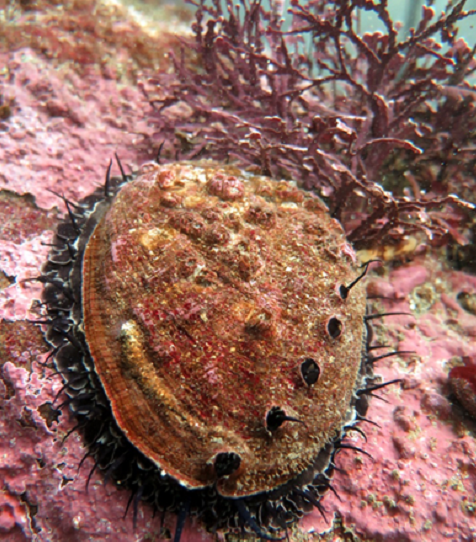
North coast abalone season update

by CDFW
1-9-2017
Website
Regulations for California’s popular red abalone sport fishery have changed in 2017. Due to concerns about the declining population, the season will be shortened and the take limit reduced.
The 2017 season will be shortened by two months, with the traditional opening date of April 1 now delayed until May 1. The fishery will also close a month earlier than usual, on Oct. 31.
The annual (calendar year) limit is changing from 18 abalone to 12. As in the past, no more than nine abalone may be taken south of the boundary between Sonoma and Mendocino counties.
The red abalone catch is being reduced because surveys conducted by the California Department of Fish and Wildlife (CDFW) found that red abalone populations in deeper waters are on the decline due to unfavorable environmental conditions. Over the past three years, growth of kelp — a major food source for abalone – has declined significantly. Dramatic increases in purple sea urchin populations have further reduced the food available for abalone. Details can be found at cdfwmarine.wordpress.com/2016/03/30/perfect-storm-decimates-kelp/.
Other regulations relative to abalone remain unchanged. Fishing for abalone will be allowed from 8 a.m. to one half-hour after sunset in waters north of San Francisco Bay. People may travel to fishing locations before 8 a.m. but may not actively search for or take any abalone before that time. The daily bag and possession limit remains at three. Parts of Fort Ross State Historical Park remain closed to the take of abalone. A map of the closed area can be found online at nrm.dfg.ca.gov/FileHandler.ashx?DocumentID=42101&inline=true.
Northern California’s recreational red abalone fishery is enjoyed by tens of thousands of divers along the Sonoma and Mendocino coast. A recent CDFW study estimated that approximately 31,000 abalone divers derived between $24 million and $44 million per year of recreational value from the fishery. The value of this fishery declined nearly $12 million after stricter regulations were imposed in 2014 following a harmful algal bloom that killed thousands of abalone in Sonoma County. Information about the study can be found at nrm.dfg.ca.gov/FileHandler.ashx?DocumentID=136510.
The changes to the abalone regulations were approved by the Fish and Game Commission at their Dec. 7 meeting, under emergency rulemaking provisions that allow fast-tracking of the approval process when there is an urgent need for regulatory change.
Website Hosting and Design provided by TECK.net